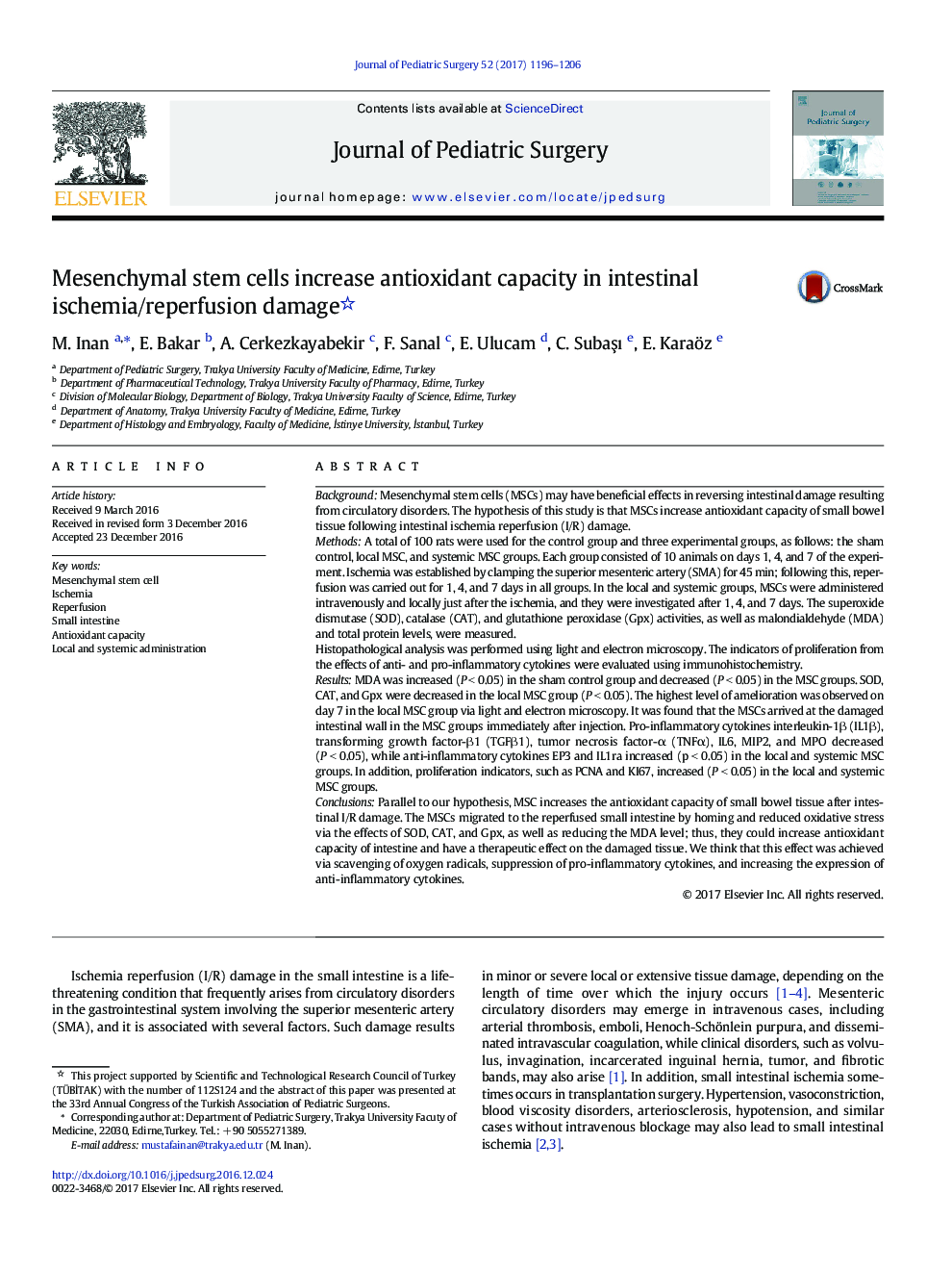| کد مقاله | کد نشریه | سال انتشار | مقاله انگلیسی | نسخه تمام متن |
|---|---|---|---|---|
| 5718263 | 1411245 | 2017 | 11 صفحه PDF | دانلود رایگان |
BackgroundMesenchymal stem cells (MSCs) may have beneficial effects in reversing intestinal damage resulting from circulatory disorders. The hypothesis of this study is that MSCs increase antioxidant capacity of small bowel tissue following intestinal ischemia reperfusion (I/R) damage.MethodsA total of 100 rats were used for the control group and three experimental groups, as follows: the sham control, local MSC, and systemic MSC groups. Each group consisted of 10 animals on days 1, 4, and 7 of the experiment. Ischemia was established by clamping the superior mesenteric artery (SMA) for 45 min; following this, reperfusion was carried out for 1, 4, and 7 days in all groups. In the local and systemic groups, MSCs were administered intravenously and locally just after the ischemia, and they were investigated after 1, 4, and 7 days. The superoxide dismutase (SOD), catalase (CAT), and glutathione peroxidase (Gpx) activities, as well as malondialdehyde (MDA) and total protein levels, were measured.Histopathological analysis was performed using light and electron microscopy. The indicators of proliferation from the effects of anti- and pro-inflammatory cytokines were evaluated using immunohistochemistry.ResultsMDA was increased (P < 0.05) in the sham control group and decreased (P < 0.05) in the MSC groups. SOD, CAT, and Gpx were decreased in the local MSC group (P < 0.05). The highest level of amelioration was observed on day 7 in the local MSC group via light and electron microscopy. It was found that the MSCs arrived at the damaged intestinal wall in the MSC groups immediately after injection. Pro-inflammatory cytokines interleukin-1β (IL1β), transforming growth factor-β1 (TGFβ1), tumor necrosis factor-α (TNFα), IL6, MIP2, and MPO decreased (P < 0.05), while anti-inflammatory cytokines EP3 and IL1ra increased (p < 0.05) in the local and systemic MSC groups. In addition, proliferation indicators, such as PCNA and KI67, increased (P < 0.05) in the local and systemic MSC groups.ConclusionsParallel to our hypothesis, MSC increases the antioxidant capacity of small bowel tissue after intestinal I/R damage. The MSCs migrated to the reperfused small intestine by homing and reduced oxidative stress via the effects of SOD, CAT, and Gpx, as well as reducing the MDA level; thus, they could increase antioxidant capacity of intestine and have a therapeutic effect on the damaged tissue. We think that this effect was achieved via scavenging of oxygen radicals, suppression of pro-inflammatory cytokines, and increasing the expression of anti-inflammatory cytokines.
Journal: Journal of Pediatric Surgery - Volume 52, Issue 7, July 2017, Pages 1196-1206
